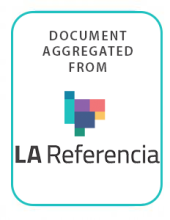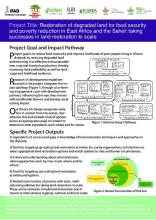Land Library
Welcome to the Land Portal Library. Explore our vast collection of open-access resources (over 74,000) including reports, journal articles, research papers, peer-reviewed publications, legal documents, videos and much more.
/ library resources
Showing items 1 through 9 of 24.The Restoration of degraded land for food security and poverty reduction in East Africa and the Sahel: taking successes in land restoration to scale project aims to reduce food insecurity and improve livelihoods of poor people living in African drylands by restoring degraded land, and returning i
Restoration of degraded land for food security and poverty reduction in East Africa and the Sahel: taking successes in land restoration to scale project brochure.
Widespread heat waves, floods, and droughts last year were a strong reminder of the threats posed by climate change. In the non-tropical dry areas where ICARDA works we are becoming accustomed to record high temperatures and increasing water scarcity year on year.
Arid, semi-arid and dry sub-humid areas cover 61 % of Tanzania (United Republic of Tanzania, 1999) and, over the past decades, several restoration projects have worked toward reversing degradation in these areas (Kikula, 1999; Kisanga et al., 1999).
Actualmente las áreas rurales campesinas presentan una alta inequidad de ingresos, vulnerabilidad ante las fuerzas del mercado, abandono creciente de alimentos tradicionales y desvalorización social del trabajo campesino.
Project goal is to reduce food insecurity and improve livelihoods of poor people living in African
drylands by restoring degraded land
and returning it to effective and sustainable
tree, crop and livestock production, thereby
increasing land profitability as well as landscape
The present document is a brief technical report highlighting activities relating to the options by context approach. The IFAD- funded project, “Restoration of degraded land for food security and poverty reduction in East Africa and the
This issue of Caravan showcases some of ICARDA’s efforts of coping with climate change in dry areas with improved water land management and resilient production systems.
“Environmental Perception Process of Desertification in Perú”, try to do an analysis and evaluation of Peruvian territory in terms of enviromental degradation due to problems of biodiversity loss, progressive loss of productive capacity land ecosystem in the climaterelevant ecological Peruvian te








